Latest posts
- Journal article: Reimagining Peace Education in Nepal: Arts-Based, Learner-Centric Pedagogy for Social Justice and Equity 13 July 2025
- Curricula: Mithila art-focused local curriculum in Nepal 2 July 2025
- MAP International Online Conference 2025 1 June 2025
- Policy brief: Gira Ingoma book and policy brief: “The Culture We Want, for the Woman We Want” 28 November 2024
- Manuals and toolkits: GENPEACE Children’s Participation Module in the Development Process 13 November 2024
- Journal article: [Working Paper] Gira Ingoma – One Drum per Girl: The culture we want for the woman we want 30 October 2024
- Curricula: Beyond Tradition: Psychosocial Model 30 October 2024
- Curricula: Beyond Tradition Module: Revitalizing Lenong as a Model for Teaching Betawi Arts 30 October 2024
- Curricula: Beyond Tradition: Lenong Revitalisation as a Model for Teaching Betawi Cultural Arts 30 October 2024
- Beyond Tradition Lenong Performance “RAWR…! Kite Kagak Takut” 30 October 2024
- Journal article: [Working Paper] Facing Heaven – Déuda Folklore & Social Transformation in Nepal 30 October 2024
- Curricula: Building Community Curriculums 24 October 2024
Visualising Peace: first screening of 3 films (November 2023)
- Cultivating well-being and mental health
- Tackling child and gender-based violence
24th November 2023
Author
Greetings from Kigali, Rwanda.
We are delighted to share with you the positive outcome of the first screening that took place on Sunday, November 12th, at the Kwetu Film Institute offices and the Rwanda Cinema training centre. This was the first opportunity for the Kwetu team—the Uyisenga Ni Imanzi team of teachers, facilitators, students, and young people—to come together to watch the films and give feedback.
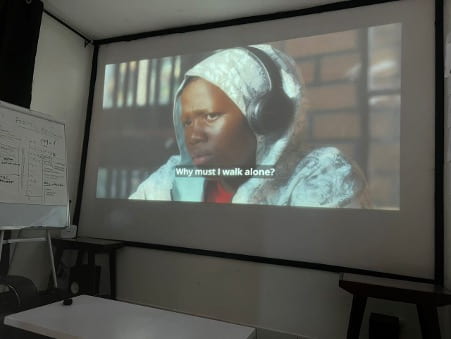
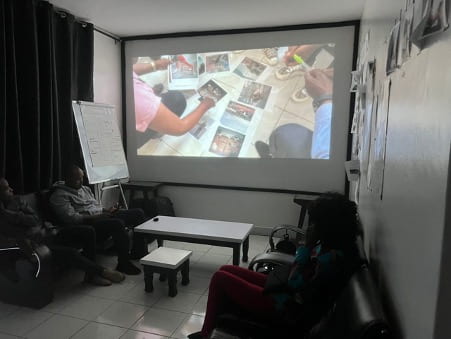
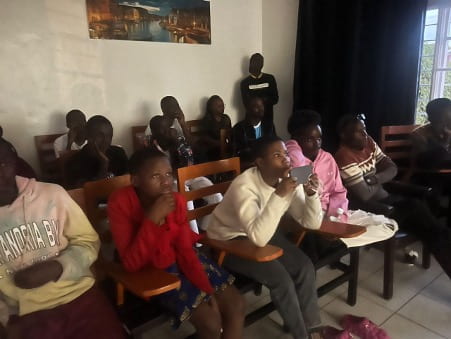
Held at the Hillywood Studio Cafe, the event began with a brief presentation by the mentors and facilitators on the three films on mental health. They are based on the results of the training they had conducted three months earlier. There was a lot of anticipation and excitement!
The film screening went very well and was received with much excitement. After the credits rolled, the UNM teachers were the first to react with huge appreciation for the results they saw. They explained that they appreciated the quality and hard work that had been poured into the films and that, in seeing the final product, they now also understood the process of filmmaking and some of the decision-making during production. They added that it was an eye-opener for them.
I took time to explain once more the different phases of making a film and what this requires in terms of the process, from the concept to the writing of the script to the screenplay to the productions, directing, editing, and then planning for the showing, promotion, and distribution. They got the whole picture from what was built from a simple idea and narrative into a tangible product that they produced and conceived.
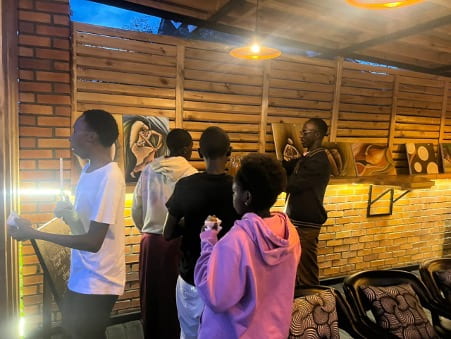
Diane, a Kwetu student, gave a brief, moving presentation of her experience. For Diane, who just learned editing for the first time in the masterclass facilitated by the University of Lincoln and Kwetu Film Institute, her experience with the first cut was significant. From the learning, she was able to create a short documentary about the project, capturing the flow of the workshop and key moments of the training and interaction. She also encouraged the young people that one day, some of them can also become professionals and embrace filmmaking as a passion and career to tell stories of people. We had invited a number of guests to the screening. One of the highlights was the presence of a young artist who had accepted our invitation to display her paintings at the Hillywood Studio Café. She was very moved by the short films, especially the one called ‘This is My Story’. She happened to have personal experience with the story in the film, being taken in by a family after losing her parents and relatives during the genocide against the Tutsi. She sobbed during the screening, and I came to stand next to her and comfort her. Little did I know that she had a similar story. She later shared about her experience, but most importantly, she encouraged the young people to overcome, to be brave, and to face life like she did. Her painting and her entrepreneurial spirit were the icing on the cake. She shared her positive attitude with the children and the group attending the screening.
The overall reaction to the programme is that they all want it to continue, as they enjoyed the training and would like to attend more workshops.
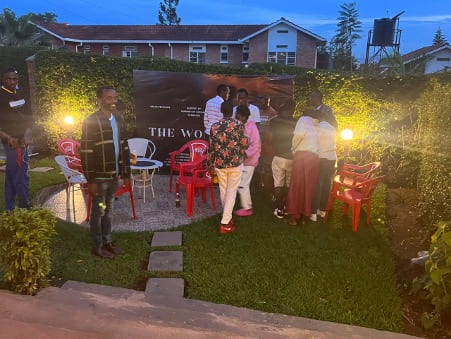

Visualising Peace
Using film-making and art exhibitions to address the barriers young people face in engaging and influencing community members and policymakers.
